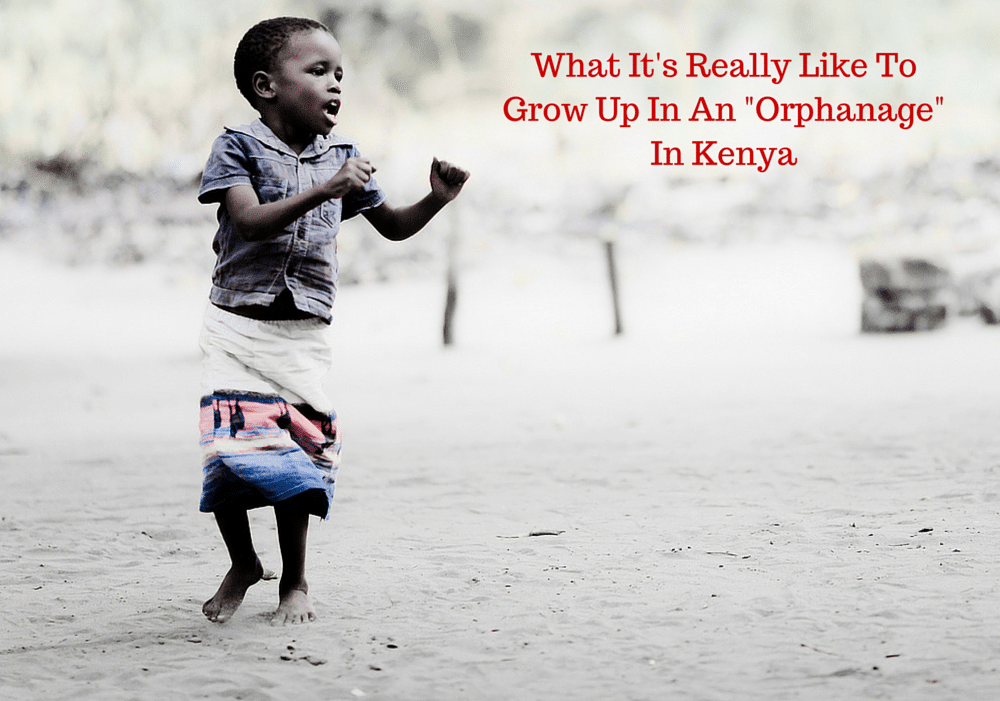
Text & Photos by Stephen Ucembe (unless otherwise noted)
Stephen Ucembe founded the Kenya Society of Careleavers (KESCA) in 2009 to provide support to young people leaving institutional care. Significantly influenced by his own experience of growing up in institutional care, Stephen now works with Hope and Homes for Children as a Regional Advocacy Manager. The organization’s vision is a world in which children no longer suffer institutional care. In this article, he shares his perspectives of volunteers visiting “orphanages.”
Occasionally, well-wishers would fund a trip for us to visit local animal orphanages. These were often the only moments we could see beyond the walls of the institution. Early morning we got ready, and the rare sound of the engine of the bus rattled the bunk beds that we slept on. In joy we lined up to be bathed, and in less than an hour we were sitting in a bus that slithered across the city to the animal orphanage.
Freedom belonged to the animals that roamed in the fields. For those that were caged, it must have seemed like prison. With both hands I crawled along the fenced to see them through the wire gauze. Sometimes we were allowed to throw in some food by the rangers. After a whole morning of amusing our eyes and minds were taken back to our own orphanage.
After each visit, I sat down in reflection and wondered how in all ways but being human I had also been reduced to the level of a caged animal. I liked the fact that volunteers came and brought candies and toys, I liked that they brought clothes — both torn and new — and food, cooked and raw; but, I never liked the constant thought and feeling of being reduced to an animal caged in a zoo. This was a constant reality for almost 14 years of my childhood.
The Volunteers Arrive
Dressed in a uniform of blue shorts and yellow and blue t-shirts branded with the name of the orphanage, we were gathered under a tree for shade, standing at the centre of the institution to wait for the visitors. We never called them volunteers then, but visitors. The only thing that we never had were shoes. My feet had gotten used to the rough pebbles underneath, and had hardened — hardened enough to crush twigs and sometimes even thorns bent when they came into contact.
Often, the reason behind not wearing shoes was to show how impoverished we were, to persuade donors to donate more. The institution staff had taught us a routine. They paraded us, and as soon as the visitors arrived in tour vans we had to exude joy. Indeed, we jumped up and down, and raptured in unison with song and dance that welcomed them.
We knew the only way to ensure they came back to help the institution was to make these visitors smile at our entertainment, and feel moved by the tears, sadness or sympathy that came when they were told that we were “orphans.” I remember the senior staff on duty standing at the center of a circle of volunteers pronouncing how some of us had been abandoned by their parents, how others had been picked from the streets and others rejected by families.
The majority of us often dropped our heads in shame and embarrassment during these introductions. The term orphan, although sometimes used with good intentions, had become a homogenizing and pathologizing label. It stole away our individuality and dignity.
Silently I felt sad and miserable to have people gawk at me and have cameras flashing in our faces. Most of the volunteers were taken around the institution to see where we slept, where our food was cooked, and were told of upcoming projects. Some committed to help, and others gave a one-off donation. Some of these encounters were brief, they pulled down their sunglasses, walked back to the vans and from the vehicles they waved us goodbye.
At this point some of us had gotten used to their coming and going, but others not — especially the younger ones. Tears knocked at their eyelids. They tried not to cry in an environment where crying was almost taboo. This is a practice with visitors had become a routine that made many of us feel even more alienated, isolated, stigmatized, helpless, hopeless and weak.
To get the #volunteers to come back we #orphans had to make them smile at our sadness #StopOrphanTrips Click To TweetExperiences With Long-Term Volunteers
There were some volunteers who came and stayed longer. Every morning they showed up to play with some children. We acknowledged their presence. Many of us felt they were closer to us as adults than the absent staff; they were a reflection and model that adults, too, could interact with us children. We did indeed cling to their presence like they were never going to leave; but, eventually, they had to leave. All we could do is curl and behave like nothing ever happened, but deep inside they had shattered our trust.
Many had their favorite children — especially the younger ones who got hugs and kisses, and were called “sweet” and “adorable.” On the other hand, those not “adorable” ones were left alone. Additionally, it was sad because this fermented envy and resentment amongst older children, and many living with disability who were just to be seen from a distance and unappreciated.
There were instances where volunteers became attached to some specific children and they offered to sponsor their education and meet other needs. Again this reinforced the feelings of envy. Some children had parents and relatives, but as the volunteers had been told they were orphans, the children were denied an opportunity to visit their parents to maintain this lie. If they visited or were taken home then they were not orphans. The institution, fearing that they would lose funding and support, couldn’t let this happen.
So long as volunteers are funding or bringing donations, doors are always wide open in institutions, and there are few adequate child protection measures and systems in place. The voices of these children are often stifled, living in a culture of “be seen but not heard.” And their damaged self esteem makes them easy prey for volunteers, staff and even older peers in the institutions. Young people who have left institutional care have highlighted sexual violence by volunteers. Similarly, the media has highlighted violations on institutionalized children by some volunteers. Between April-June 2014 Mathew Durham a missionary from Oklahoma was found guilty of defiling around 10 children in an institution. A British Airways pilot Simon Wood was found guilty of molesting children in institutions during stopovers in Kenya.
These youth hardly ever report such violations because they fear reprisal. With gated and hedged fences around them, they essentially lack the privilege of space, of cries and voices being heard by a neighbor whom they can approach and report to. They can be trapped in a defeatist environment, whose concept of care and protection is neglect, exploitation and oppression in many ways.
This routine with #voluntourists made us #orphans feel even more alienated, isolated & weak. #StopOrphanTrips Click To TweetThe Real Situation For Vulnerable Children In Kenya
According to the Kenya Guidelines for the Alternative Care of Children in Kenya launched in 2015, it is estimated that between 30–45% of the 2.4 million orphans and vulnerable children in Kenya are living in children’s homes or orphanages. Convinced by the presence of over two decades of research on the short term and long deleterious effects of institutional care, the guidelines were developed to strengthen alternative family and community based care and reduce reliance on institutional care. The majority of the institutions in Kenya are still supported by foreigners. Many of these foreigners, indeed, are well intentioned.
However, we need to understand that funding institutions frustrates the government’s efforts to transform the care sector to that of family and community based care. What is worrying is that international voluntourism has expanded and is now also being reinforced locally by individuals and groups from businesses, local churches, colleges and university students. Most institutions now have their Sunday and Saturday schedules full of volunteers.
Funding and supporting institutions disrupts the local family and community-based child protection systems. We deny local families and communities a sense of responsibility and accountability. This has often led local communities to start referring to these children as “the children of the institution.” These community systems, although incapacitated at times to provide materially, remain a fundamental pillar in ensuring that children have a sense of belonging, identity and that they receive the love they need for growth and development.

Our efforts should be to strengthen this more sustainable system. Our efforts should be to keep families together and strengthen a sense of community. We need to be cautious and conscious that our actions or funding do not deprive children their sense of dignity. A child in Africa, or a child in any developing country deserves the same rights, dignity and respect as any child elsewhere.
There are no second hand children.
There are no second hand children. #Educate yourself on the truth of #volunteering in orphanages. #StopOrphanTrips Click To TweetThis article is a contribution to a month-long blogging campaign to #StopOrphanTrips, coordinated by Better Volunteering Better Care. Better Volunteering Better Care is a cross-sector global working group made up of individuals and organizations campaigning against international volunteering in orphanages, and supporting responsible volunteering alternatives. Throughout May, leading up to International Children’s Day on June 1st, Better Volunteering Better Care members and bloggers from around the world are working together to raise awareness of the problems surrounding volunteering in orphanages, and calling on volunteer travel providers to stop orphanage placements.
What to help #StopOrphanTrips? Here's how Click To TweetHow To Help
Please share this article with your friends and family with the hashtag #StopOrphanTrips.
Sign the Avaaz petition calling for travel operators to remove orphanage volunteering placements from their websites by the next Responsible Tourism day at WTM in London in November 2016. Don’t forget to share it and include the hashtag #StopOrphanTrips, too.
If you’re a volunteer tourism operator who is happy to #StopOrphanTrips, then please let us know @vickysmith or [email protected] – we’d love to highlight your support of the campaign.
Recommended:
Sympathetic to “Sympathy” Tourism? It’s Time To Set The Record Straight [Blog Inspiration]
Better Than Fiction: True Travel Tales From Great Fiction Writers by Don George [Great Reads]
Yoga Download Yoga-on-the-Go [Travel Health]
Jessica Festa
Latest posts by Jessica Festa (see all)
- A Culturally-Immersive Adventure In Mongolia’s Altai Mountains - Jul 8, 2023
- This Recipe Sharing Platform Supports Women In The Culinary Industry (Labneh Recipe Included!) - Nov 5, 2020
- Hiking The Mohare Danda Community Eco-Trek In Nepal - Jun 3, 2020
- 6 Important Questions For Choosing A Responsible Yoga Retreat - May 18, 2020
- How To Create & Grow A Profitable Blogging Business (Ethically) - Jan 18, 2020

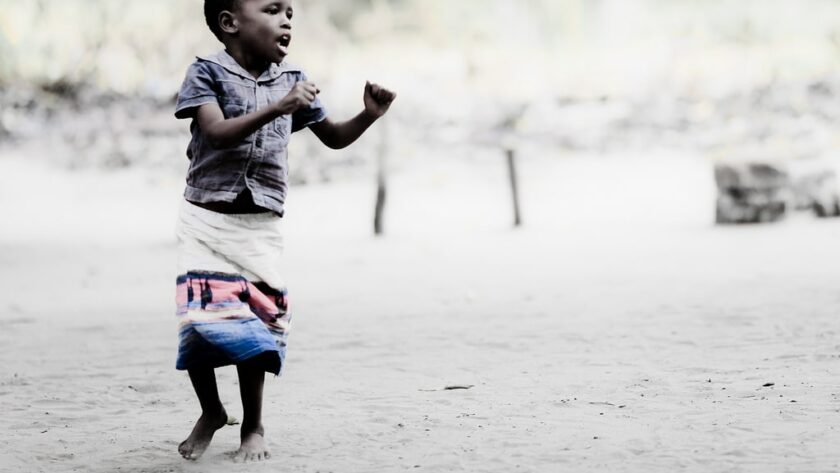


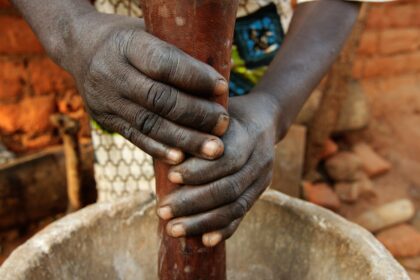
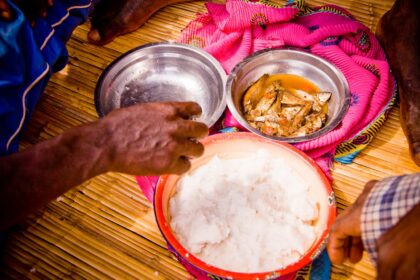
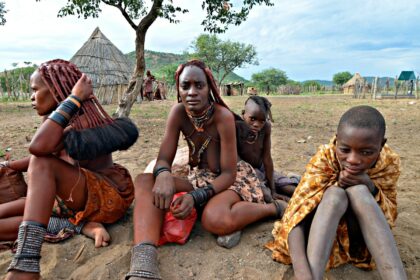
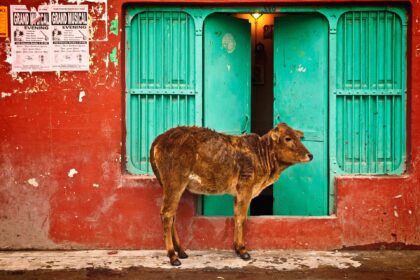
To lump ALL orphanages into this ‘caged’ article is totally ridiculous. Go to EAMO and you will certainly find that this is NOT true! And I am sure there are hundreds of other orphanages that are as EAMO – offering a loving, safe environment, education and a ‘family’ atmosphere. I hope you will visit EAMO and then come back and right another blog.
@Bonnie: The article isn’t saying all orphanages are bad. It’s talking about orphanages in the context of tourism specifically, and the detrimental effects having tourists coming in and out of orphanages can have. It’s also stating there should be a larger goal at hand when operating an orphanage. I hope this clarifies!
I totally Agree with Bonnie! There ARE even institutions, which support family-like living in orphanages and WHENEVER possible try to engage the parents of the child and support re-integration. One perfect example is Kids SOS Villages International. They also do get support from government, but relying on this is not fully possible in Russia, where I come from, also due to the state of the budget today. And to me “ignoring for good” is not a solution… This is why for my private travel project I decided that we will donate part of the profit to one of the Kids SOS Villages. Next to that I believe that if it’s not Mass tourism and people want to engage with these kids for a reason, such as giving a lesson about their country/culture or passion in life this can actually inspire a kid to learn languages etc. In this case the guest become a teacher for a day or a family friend! I agree this topic should not be exploited, but there ARE good ways to engage and support proper orphanages in a way, which is GOOD for the kids there!
Hi Bonnie and Lydia
I am connected to Stephen (who wrote this article) as part of the Better Volunteering Better Care working group (more information here http://www.bettervolunteeringbettercare.org) and he asked if I could respond to your comments.
Primarily the importance of articles like this is that rarely are the voices of those who have lived in care heard as part of these conversations. Of course, children have many different experiences of their time in residential care centres, but that doesn’t change the validity of Stephen’s experiences and opinions.
Stephen was not suggesting that all residential care institutions are the same. However, he was offering his professional experiences and opinion as someone who has worked extensively on the issue of care of vulnerable children in Kenya. There, as in many countries, there is an over-reliance on residential care which is partly being fuelled by the funding available for it from tourism and volunteering. The majority of the children in orphanages have one or more living parent, and are often there for reasons of poverty, or for better access to education. Stephen’s perspective, which informs the work he does, is that instead of placing children in residential care, families should be supported to stay together.This is in line with the UN Guidelines on the alternative care of children – which states that residential care should only ever be used as a temporary solution for a child, and that all other efforts should be made before placing a child in residential care.
Stephen sees in Kenya that the growth of orphanages is frustrating the governments efforts to support family and community structures which will prevent the separation of children from their families.
For more information, and for academic articles and information from other countries where this is happening, please see http://www.bettercarenetwork.org/bcn-in-action/better-volunteering-better-care, or feel free to drop me an email on volunteering (at) bettercarenetwork.org.
Dear Anna,
Many thanks for your comments also on behalf of Stephen. And I personally can understand this “call for action” or better said “no action call” to prevent the situation with Kenyan orphanages from worsening.. I respect and understand this call, however I do believe that we cannot generalize in this topic. If in one situation the orphanage topic is being so to say “exploited”, it still does not mean that supporting orphanage organizations from the travel organizations cannot work in a way that helps this kids in some way… My experience proves exactly the opposite and there are few conditions to it: 1) personal or small group travels ensure that there is personal connection between travelers and kids during the “culture lesson” 2) working with respected orphanage organization, which ensures that the core of their work is providing kids with the best possible environment for development and when possible reconnecting with the parents. Therefore with all the respect to the topic raised by Stephen, I find it necessary to prevent from Generalizing and using a wide call for #StopOrphanTrips hashtag, as in cases other then this you may actually harm some other orphans, for whom support from travel organizations could make a positive impact – supporting education, connecting to other cultures etc…
I was born and raised in Embu town in Eastern Province, Kenya. I was the eldest of five siblings – 2 girls and 3 boys. Our mother passed away when I was the eldest of five siblings in 1963. I was 8 years old and the youngest was four days old. Dad re-married and that was the beginning of our miserable life of torture, starvation and countless incidents of torture and deprivation of bare necessities of life. I have a dream to start my own Children’s Home (not an orphanage) in Embu as a way of giving back to my community in the future. I have a vision of having the best children’s home (God willing) where there will be no abuse or tears but lots of hugs, laughter and singing/play time.
@Angela: Thank you for sharing your story. I’m so sorry about your hardships. It sounds like you have a beautiful goal, and we hope you accomplish that!
Angela Wambugi Njagi, I came across your story about your life and your desire to open a children’s home and I am wondering did your dream come true ? Did you get any help? And what kind of response did you get from writing your personal story here on this site?